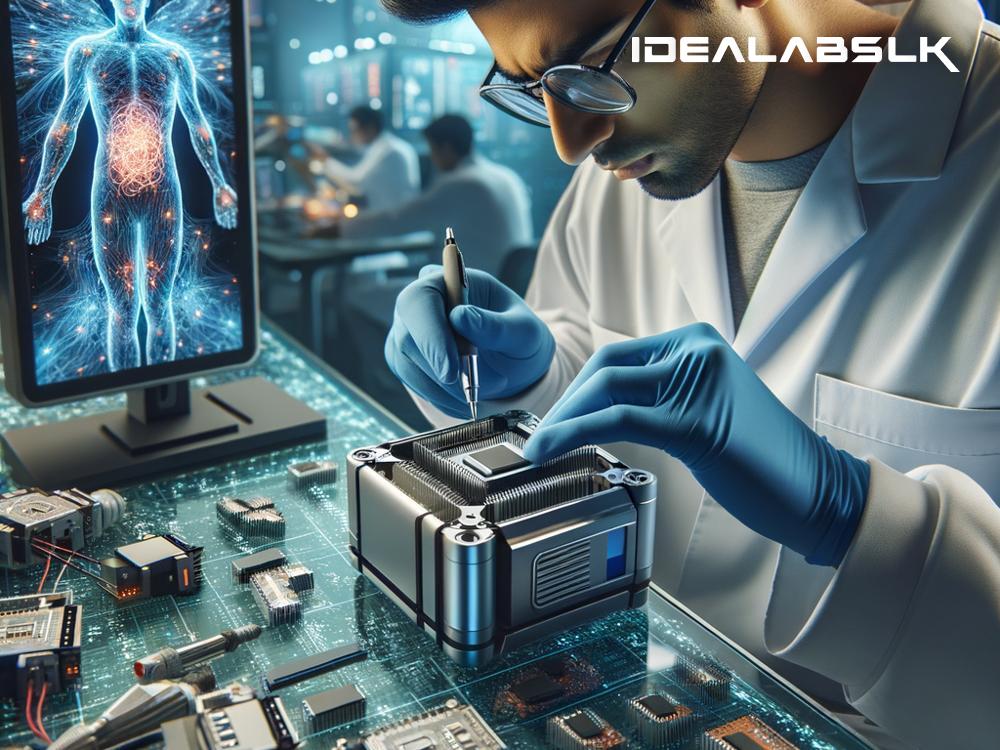The Future of AI in Portable Medical Devices for At-Home Diagnostics
In recent years, we've been witnessing an incredible shift in how we approach healthcare, thanks to the rapid advancements in technology. One of the most exciting developments is the integration of Artificial Intelligence (AI) in portable medical devices designed for at-home diagnostics. This innovation is not just changing the game; it's reshaping the future of healthcare by making it more accessible, efficient, and personalized.
Let's dive into what this all means and explore the bright future ahead for AI in portable medical devices for at-home diagnostics.
Breaking Down the Basics
Firstly, AI, in simple terms, refers to the simulation of human intelligence in machines. These AI-powered machines can learn from data, make decisions, and carry out tasks that typically require human intelligence. Now, imagine combining this revolutionary technology with portable medical devices that you can use in the comfort of your home. That's exactly where we're headed, and it's as exciting as it sounds.
The Shift to At-home Diagnostics
Traditionally, if you felt unwell or needed a routine check-up, your only option was to visit a healthcare professional in a clinic or hospital. However, with the rise of portable medical devices equipped with AI, the scenario is rapidly changing. You can now monitor your health, diagnose conditions, and even predict future health risks right from your home. This shift not only saves time and cuts down healthcare costs but also empowers individuals to take control of their health.
The Role of AI
AI plays a pivotal role in this transformation. By analyzing vast amounts of data, AI applications in these devices can detect patterns and anomalies that might indicate a health issue. For instance, an AI-powered wearable can continuously monitor your heart rate, sleep patterns, and activity levels to provide insights into your heart health and overall well-being.
Moreover, these devices can learn from your data over time, offering personalized health recommendations and alerting you to potential health risks before they become serious issues. This kind of proactive healthcare was unimaginable a few years ago but is now becoming a reality thanks to AI.
The Future is Bright
So, what does the future hold for AI in portable medical devices for at-home diagnostics? Here are a few trends and possibilities:
-
Increased Accuracy and Early Detection: As AI algorithms become more sophisticated, the accuracy of at-home diagnostic devices will improve. This means conditions can be detected earlier, often before symptoms appear, enabling prompt treatment.
-
More Personalized Healthcare: AI will make healthcare more personalized than ever. By understanding your unique health profile, these devices can tailor recommendations specifically for you, from diet and exercise to medication management.
-
Integration with Telemedicine: AI-powered portable devices will seamlessly integrate with telemedicine platforms, allowing healthcare professionals to monitor your health remotely and provide timely interventions. This connectivity will be crucial for managing chronic conditions and ensuring continuous care.
-
Broader Range of Diagnostics: Currently, at-home diagnostics might be limited to measuring vital signs and detecting specific conditions. However, we can expect to see advancements that enable a broader range of diagnostics, including blood tests, respiratory functions, and even genetic testing, all from home.
-
Improved Accessibility: One of the most significant impacts of AI in portable medical devices is the potential to make healthcare more accessible, especially in remote or underserved regions. With these devices, quality healthcare can reach virtually anyone, anywhere.
Embracing the Change
The integration of AI in portable medical devices for at-home diagnostics is a monumental leap forward in healthcare. However, it's essential to approach this change with an open mind and a willingness to adapt. As AI continues to evolve, so too will our understanding and management of healthcare.
We're standing on the brink of a healthcare revolution, where proactive, personalized, and accessible care is the norm, not the exception. The future is bright, and it's filled with possibilities that will continue to transform our lives in ways we can only begin to imagine.
In conclusion, the fusion of AI with portable medical devices is not just a trend; it's the dawn of a new era in healthcare. A future where diagnostics are not just limited to the confines of medical facilities but extended into our homes, offering everyone the chance to be an active participant in their health and well-being. As we move forward, one thing is clear: the future of healthcare is here, and it's more accessible, efficient, and personalized than ever before.

